18 Cheap Summer Activities for Kids
The summer holidays might fly by when you’re a kid – but for busy parents, six weeks of keeping little ones entertained can stretch on. Combine that with families’ household budgets being squeezed, and summer activities can pose a real challenge.
At SaveMoneyCutCarbon, many of our team have families – and naturally, we’re a frugal bunch. We’ve put together this list of cheap and eco-friendly activities to fill the summer holidays with fun.
Everything in this list is a genuine go-to for one of our team’s families. From nifty crafts to cheap deals out, there’s something here for kids of all ages. Don’t forget the sunscreen!
1. Take a ‘colours in nature’ scavenger hunt
To make a walk in nature ten times more interesting for younger kids, all you need is an egg carton and some paint. Dab a different colour into each hole of the carton – then, the challenge is to find a natural object to match each colour. It’s a brilliant way for children to explore their senses and engage with the natural world.
To make a day of it, why not pack a picnic? Ditch the clingfilm-wrapped sandwiches and use beeswax wraps instead. These sustainable plastic-free wraps are handmade in the UK, using waste fabric offcuts and locally-sourced beeswax.
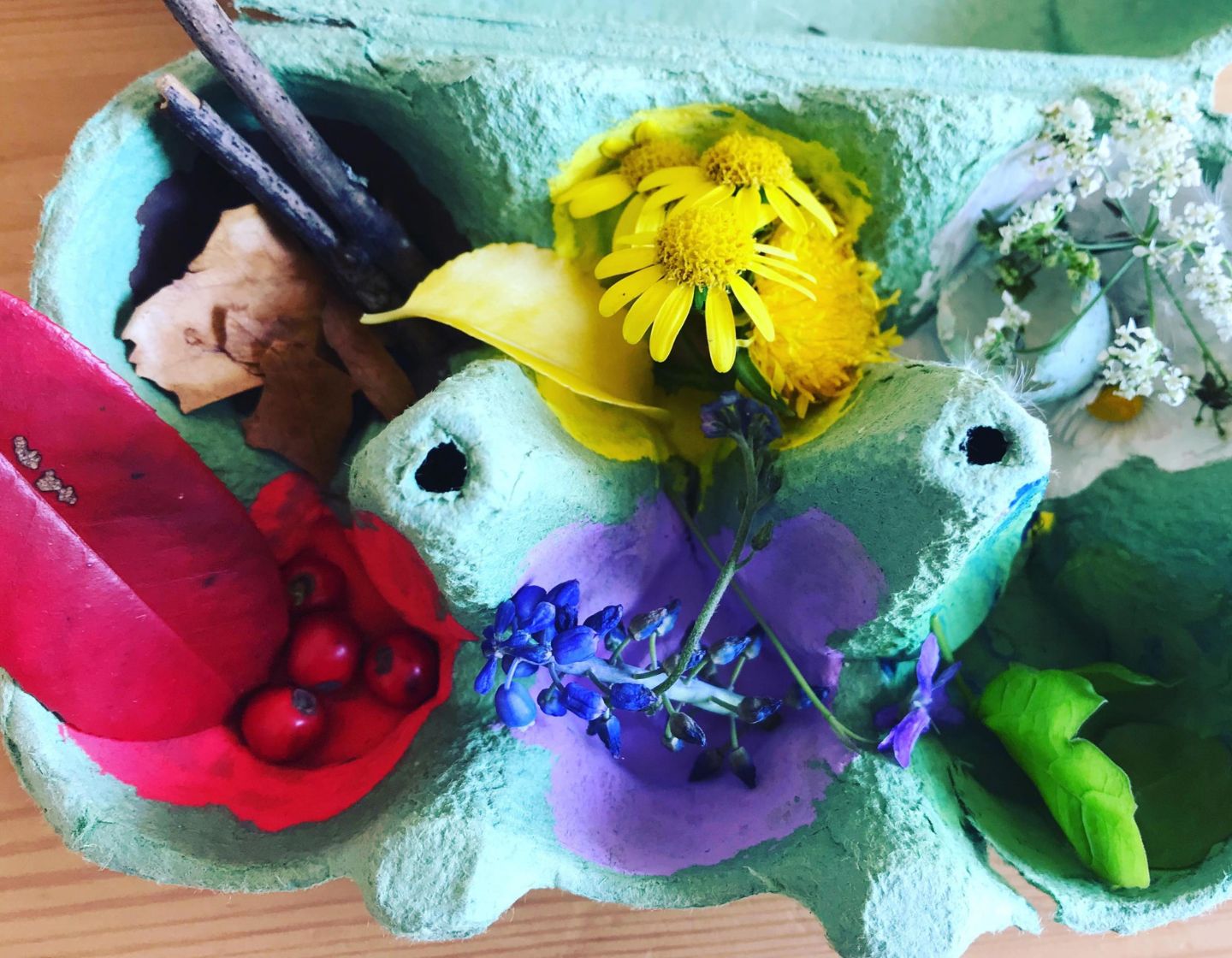
2. Make a simple bird feeder out of toilet roll
Your kids will love turning a loo roll tube into a yummy treat for the birds – followed by watching nature flock to your garden! All you need to do is smear the tube with peanut butter and roll it in some birdseed to cover it. To hang it up, simply slide it onto a small branch or put some string through it (best done before the peanut butter step).
Printing a guide to British birds and sticking it near the window can encourage children to identify species coming to visit. Be patient – birds may not notice the feeder immediately, and don’t be discouraged if a squirrel gets to it first!
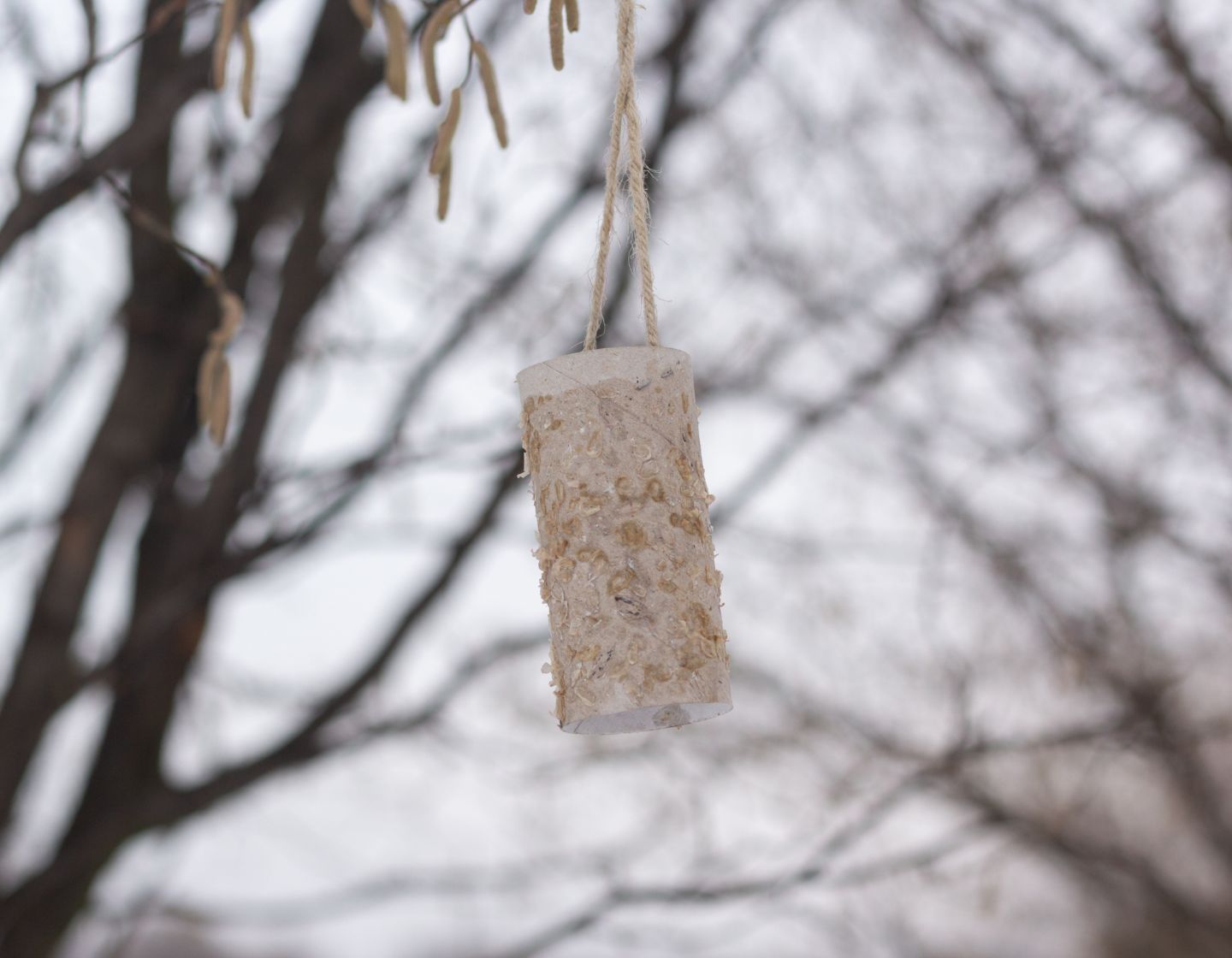
3. Hit the charity shops
Are your kids pining for new stuff? Encourage the practice of thrifting by taking them to charity shops with a bit of pocket money. You never know what hidden gems you’ll find rummaging around – from toys and trinkets to clothes and accessories.
Not only is this a fantastic way to introduce kids to the value of money, but you can also teach them about charity, waste and the concept of reusing items instead of throwing them out. Find out about the specific charities that run your local shops, and show children how their purchases are helping these causes.

4. Visit a museum
There are fantastic free museums all across the UK, covering everything from science, art and history to more niche things like cartoons, transport and toys. It’s a fun way to engage your children with education – and you’ll probably learn something new too!
Bear in mind that museums can be boring for kids, so make sure they align with the interests of your children. Does your kid love dinosaurs? Visit a museum that covers natural history. Do they need a little more stimulation than quiet exploring? Make sure the museum has lots of interactive exhibits to engage them.
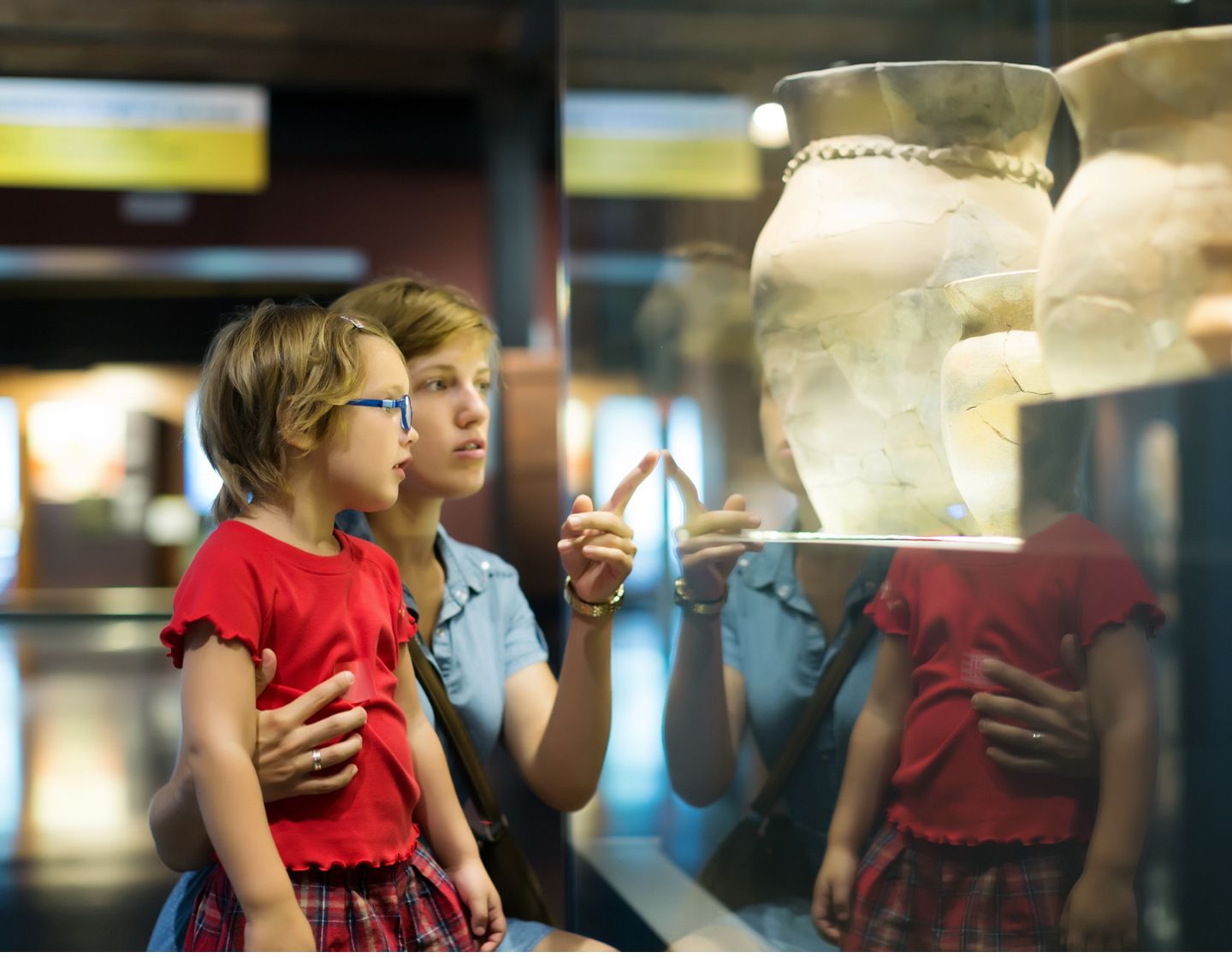
5. Spend a day at the beach
The UK’s beautiful coastlines offer the ultimate free day out in the summer. Paddle in the sea, make epic sandcastles, bury each other in the sand – your family is bound to make amazing memories every time you go. Why not beat the traffic (and go green) by taking the train? Children under 15 get cheaper tickets, and children under 4 travel free!
Don’t forget to stay hydrated in the sunshine – reusable bottles ensure plastic doesn’t end up in the sea. The Super Sparrow Water Bottle is a hardwearing stainless steel water bottle complete with both a sports and loop cap. Designed for longevity, it won’t crack or leak, so you can enjoy peace of mind.
Plus, learn how to have a plastic-free picnic.
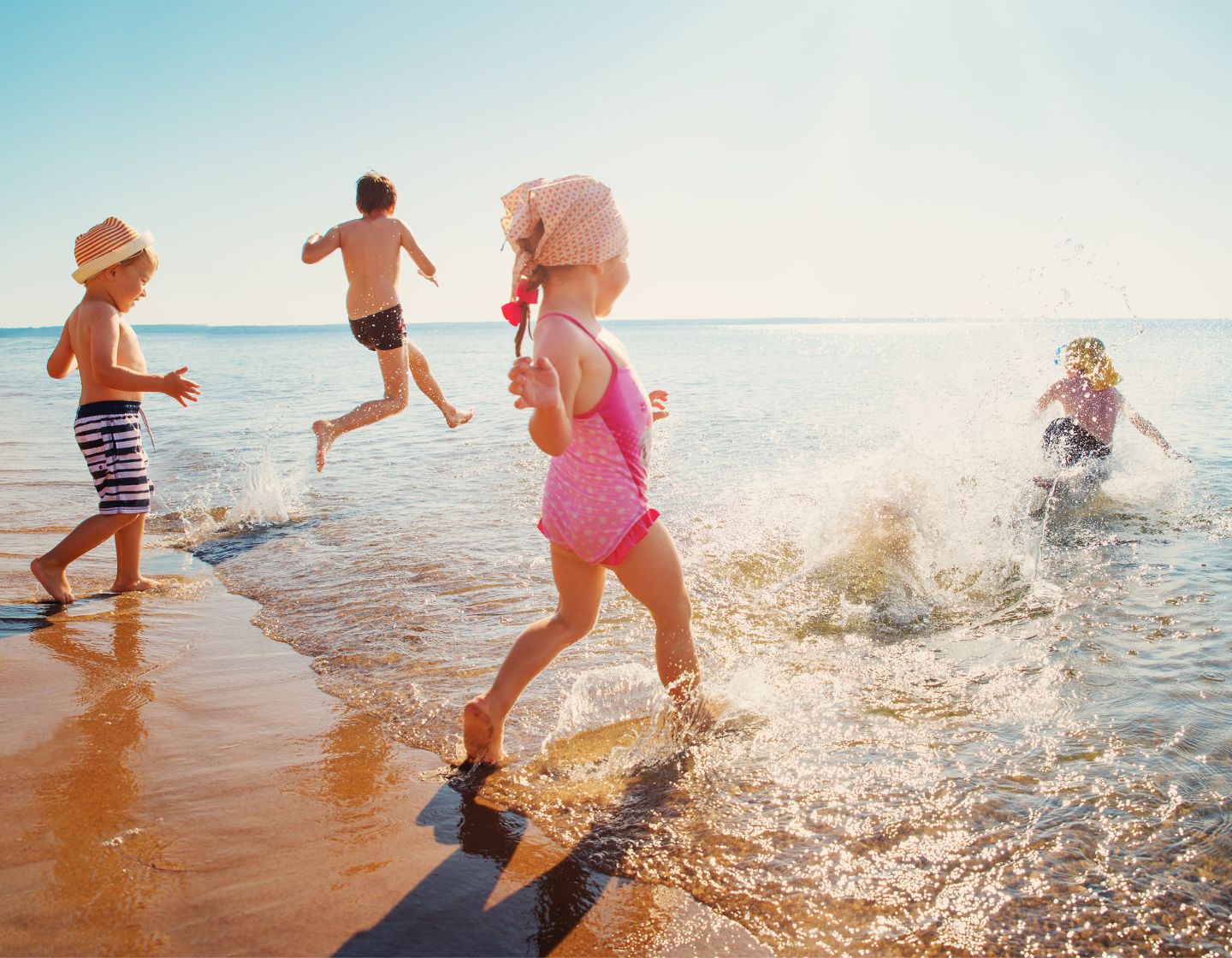
6. Take part in rock painting
Remember when painting rocks was all the rage during lockdown? Well, it’s still going strong. It’s a fun way to bring a smile to people’s faces and even build new friendships. For those not in the know, it’s essentially hide and seek using rocks. You paint rocks, hide them and partake in an online scavenger hunt!
Search for your area name followed by ‘rocks’ on Facebook, and you’ll hopefully find a dedicated page. Find some rocks and paint colourful pictures on them, then take them out and hide them around your area. But the fun doesn’t stop there! You can take a stroll around and see what rocks you can find. Don’t forget to snap a photo for Facebook and re-hide them for the next family.
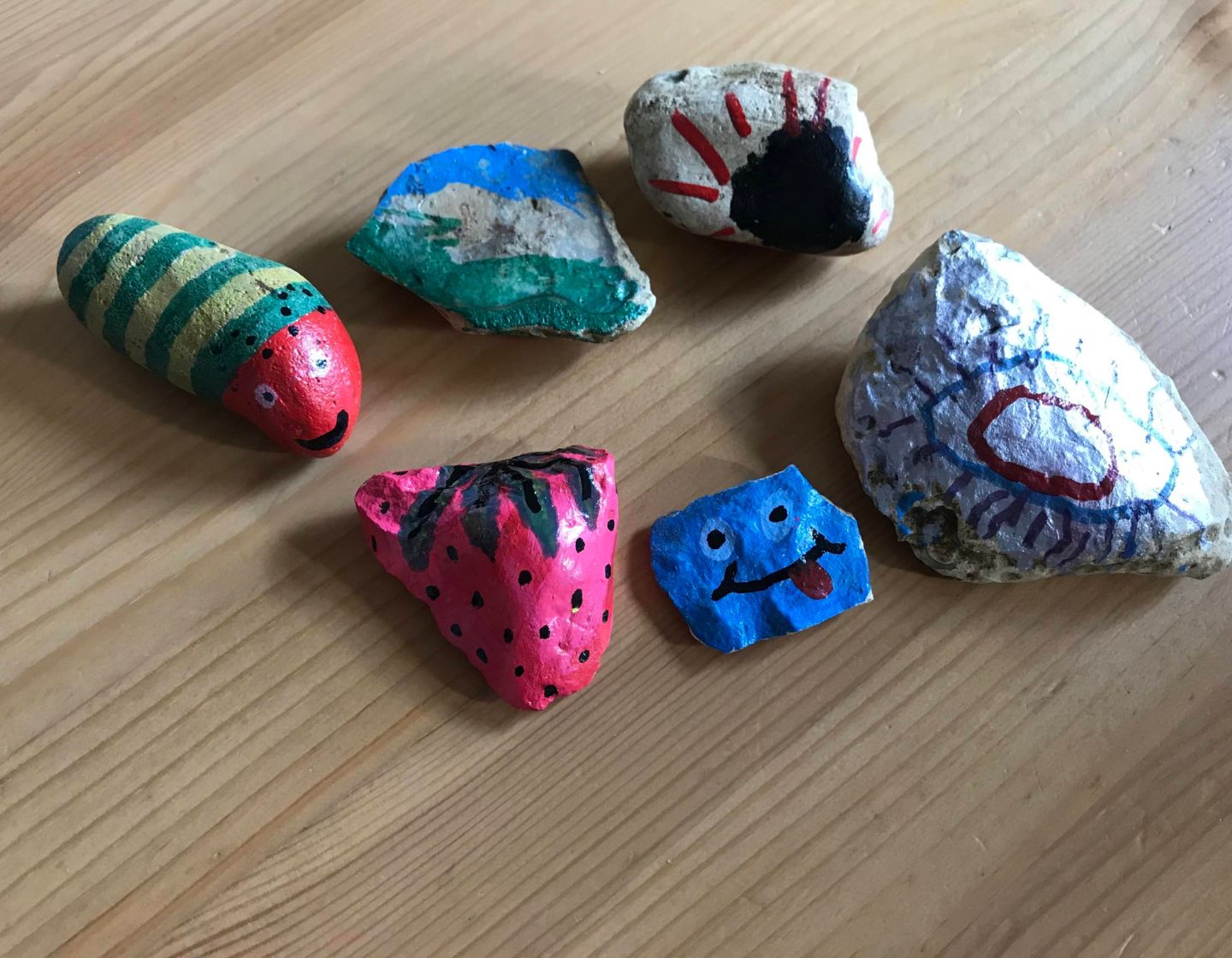
7. Make your own beeswax wraps
Beeswax wraps are a brilliant zero-waste alternative to clingfilm, ideal for wrapping up sandwiches or covering leftovers. Instead of buying a set, why not spend an afternoon making some from your old fabric scraps with the kids?
You’ll just need to get hold of some beeswax pellets or a wax block you can grate – this BEE Zero block can be used to both make wax wraps and refresh old ones. Simply sprinkle your cut fabric scraps with wax, melt it in the oven and then brush the wax evenly over the fabric. This is a great way to encourage kids against single-use plastic. View the full guide on Good Housekeeping here.
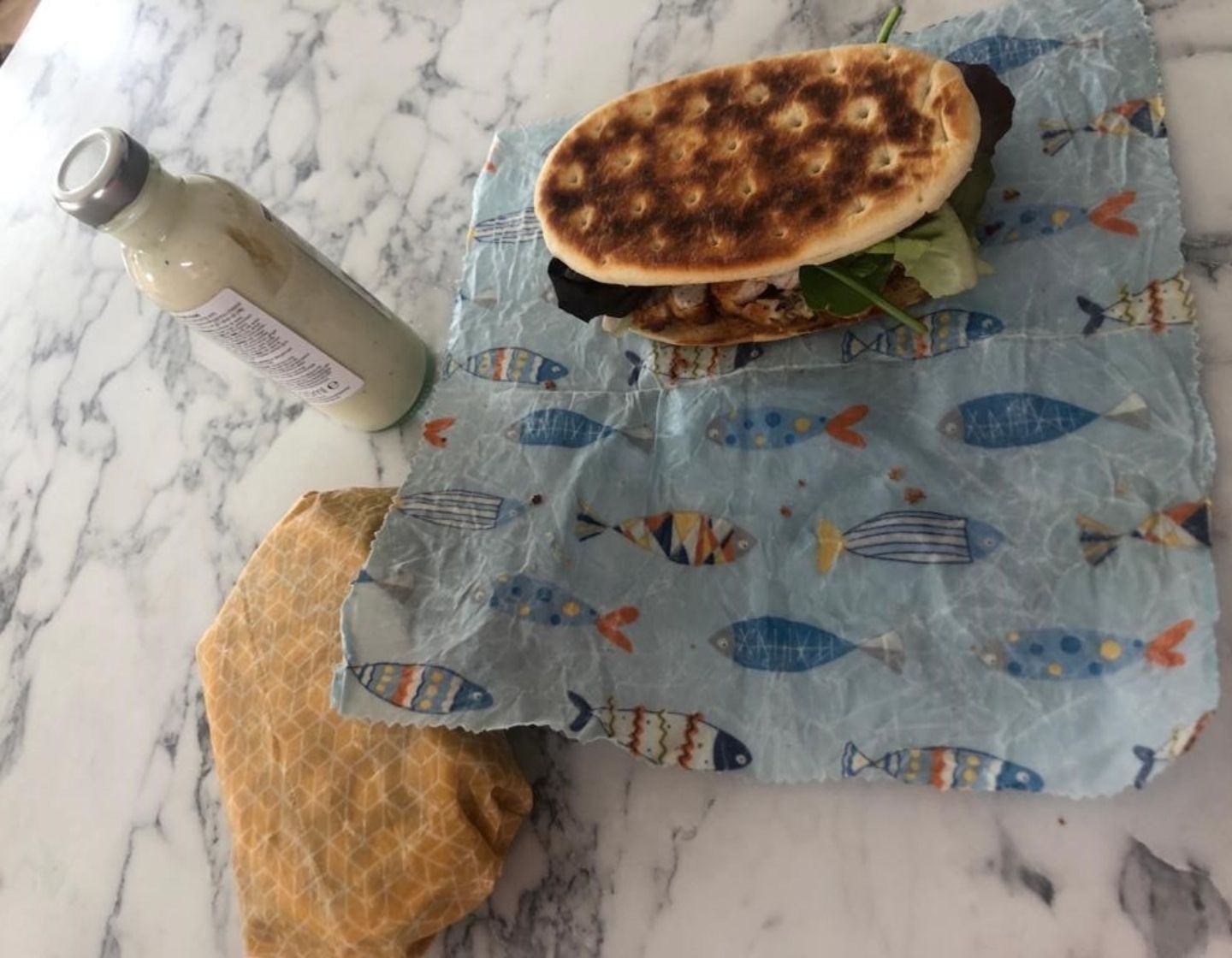
8. Create art from nature
Making use of natural materials is an easy and fun way for kids to make art – plus, it’s free! Activities like leaf printing, where you paint leaves and press them onto paper or fabric, are simple even for small kids, and can yield brilliant results.
Don’t have any materials? Making (and leaving) your natural artworks outside can be a great way to engage with nature. Create ‘land art’ within the natural environment by using leaves, sticks, rocks and other items to make patterns and pictures. Pinterest is a great source of inspiration for nature art activities.
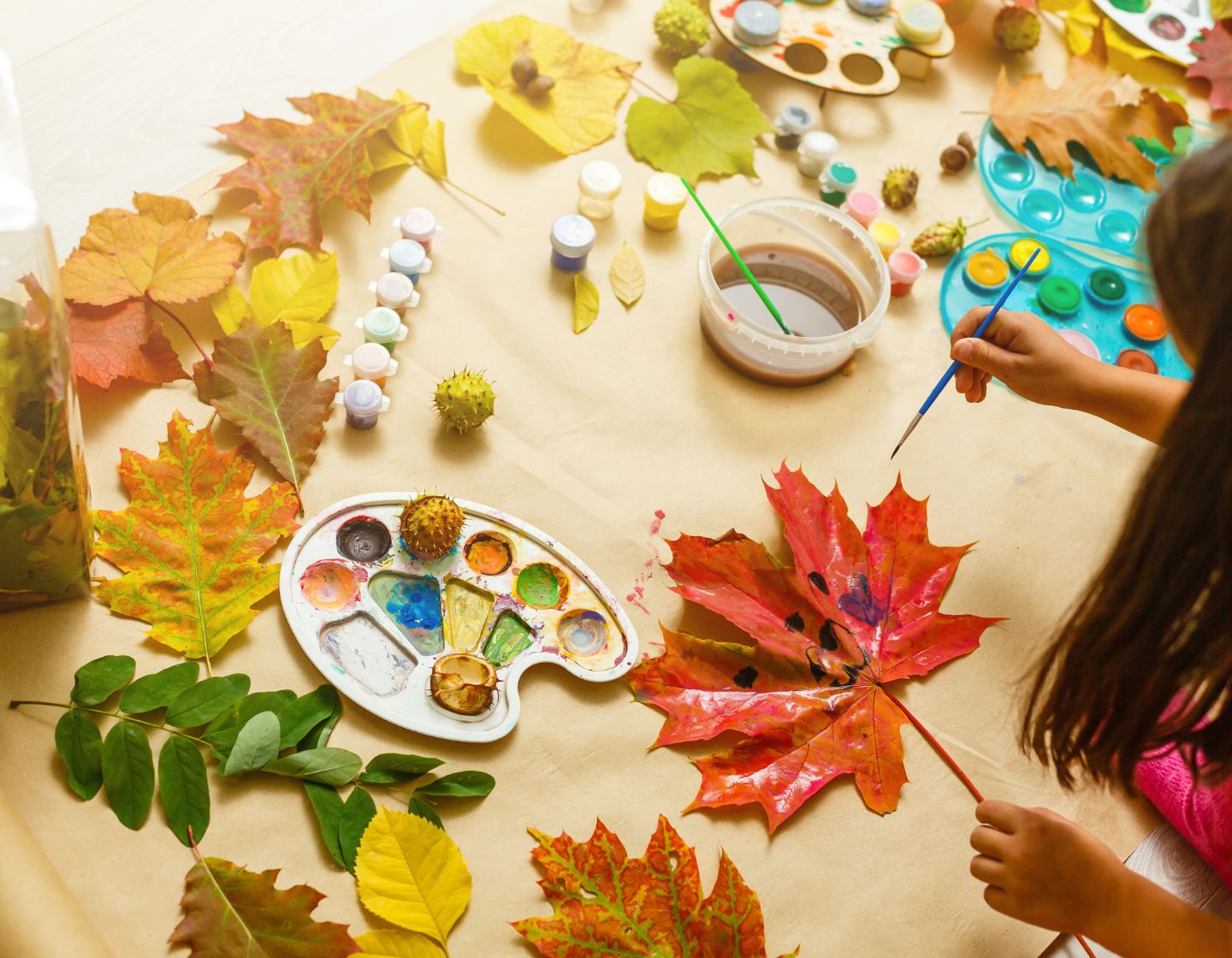
9. Get a cheap family meal out
Eating out is more expensive than ever – but if you look around, plenty of restaurants will still offer to feed kids for free. If you’re planning to eat out as part of an expensive day trip, doing your research beforehand can cut costs considerably.
To discover where you can get nearby deals, simply Google ‘kids eat free’, plus your area. Be sure to check the Ts and Cs before you go – there might be a limit on how many or how old your children can be. These kinds of offers can change quickly, so make sure you also check with the restaurant before you visit!

10. Build a den
There’s nothing better than getting a little mucky by building a den in the woods with your family. By gathering fallen branches, twigs and leaves, you can create all kinds of den shapes – the Woodland Trust has some excellent guidance. Just don’t forget to take home any unnatural materials you’ve used, such as rope.
If the weather isn’t in your favour, making a den inside is just as much fun! Using your sofa, table or chairs, all you need is plenty of blankets to drape over them. Use washing pegs to clip everything in place and position cushions all over the floor to get comfy. You could even decorate it with fairy lights and turn it into a movie day.
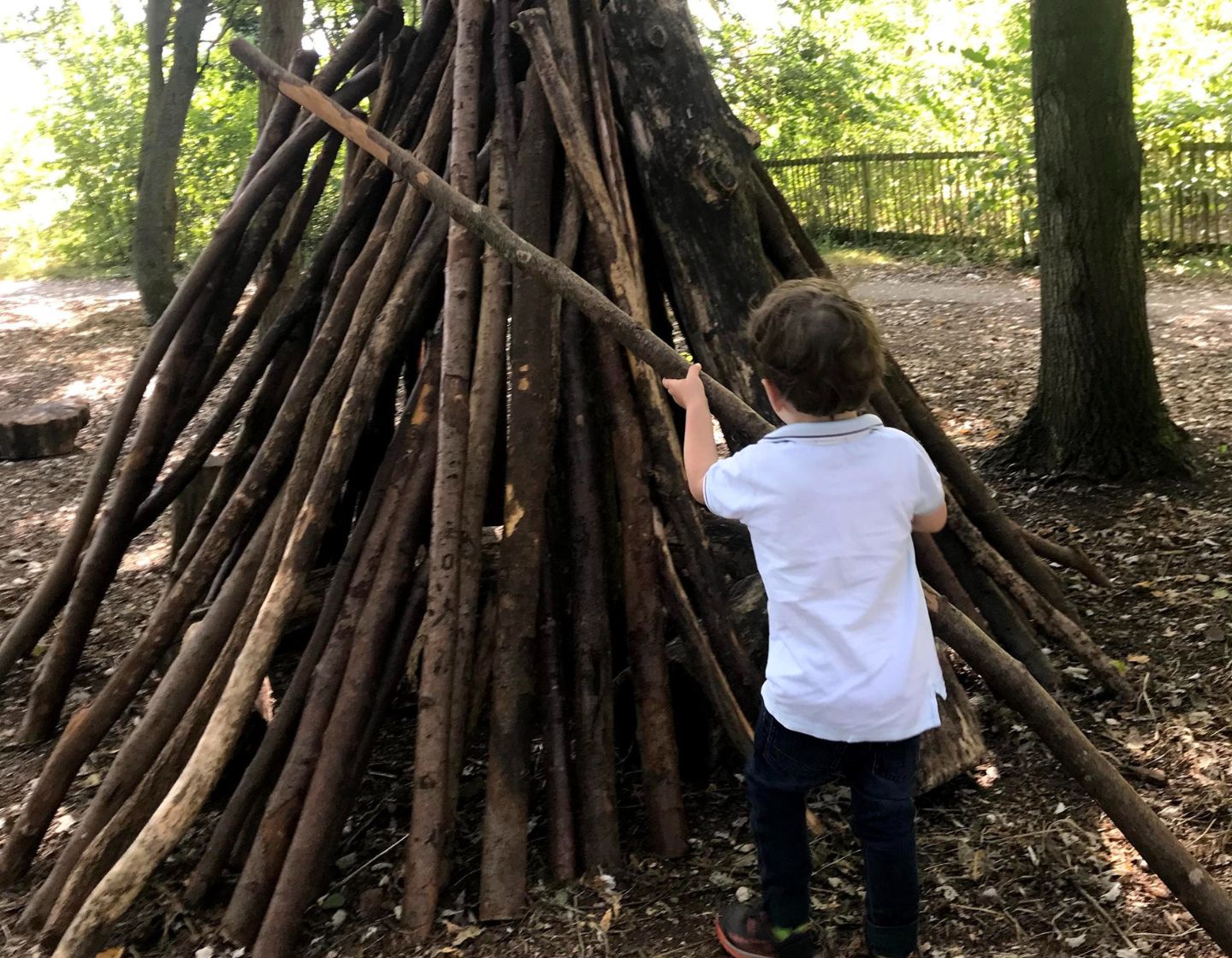
11. Make eggshell planters
Eggshells are a natural – and cheap – way for kids to make a pretty planter for your kitchen. All you need is eggs, seeds and a bit of soil. Just make sure children take care when handling the eggshells, as they’re fragile! We recommend using Mr Fothergill’s seeds to grow your own mini herb garden.
- To make an eggshell planter, tap the top of the egg and remove it, just like you would for eggs and soldiers.
- Pour out the egg (omelettes for dinner?) and rinse out the shell.
- Then, prick a drainage hole in the bottom with a pin.
- Fill the egg three-quarters full with damp soil – you can wet a handful of dry soil and then squeeze out the water.
- Add a seed and top with more soil.
- Display your planters in an egg carton, and wait for your seedlings to grow.
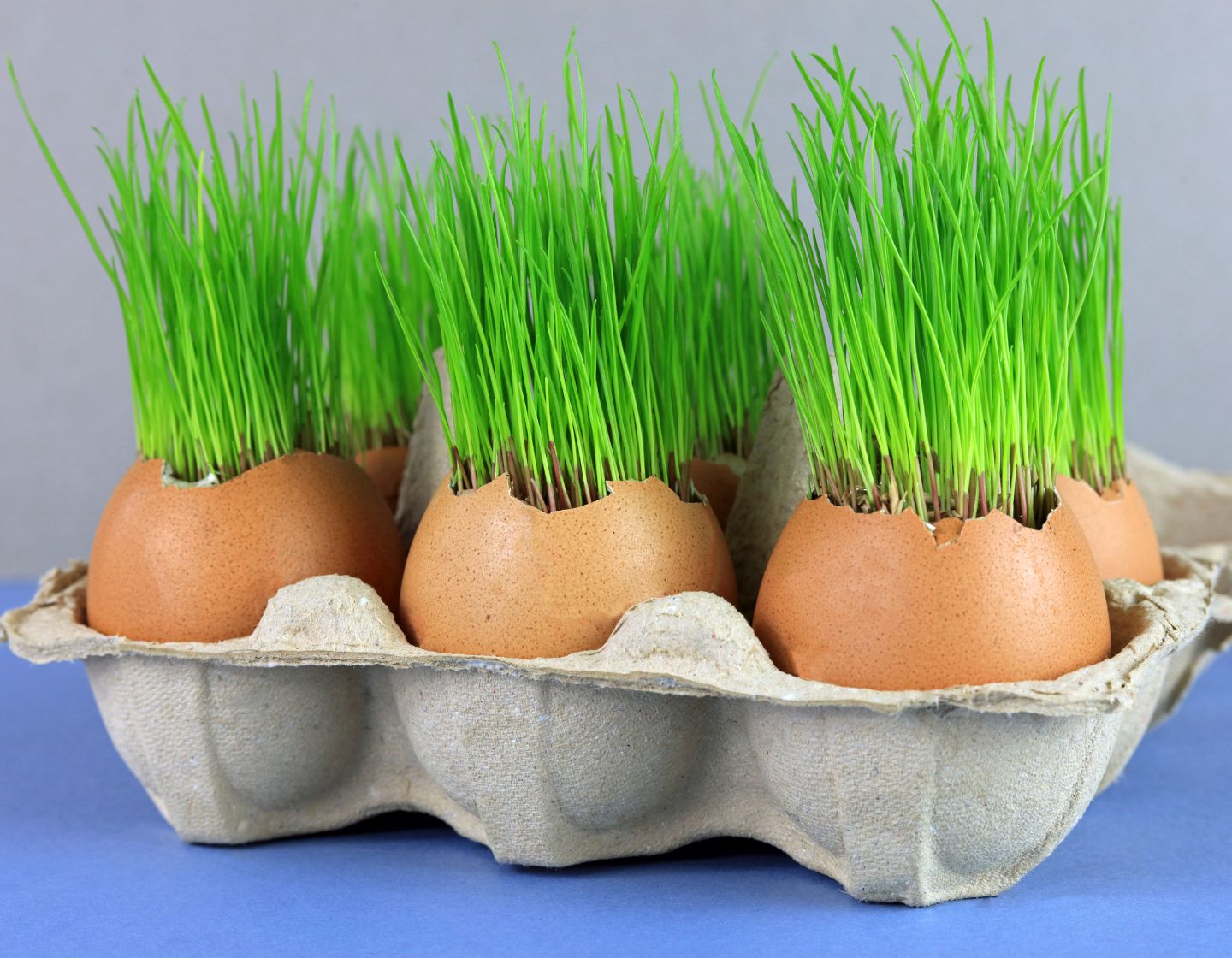
12. Visit your local library
Your local library is a fantastic resource that’s not just about browsing books! Your kids could participate in free reading groups, art classes or even coding sessions – look up your library’s website to see what they’ve got on this summer. And if your child doesn’t love reading, why not get them to try a graphic novel or audiobook?
Or have you heard of the Summer Reading Challenge? To take part in this countrywide challenge, kids just need to set themselves a goal, read books and leave reviews for them. If your library is participating, they can earn physical rewards when they reach their goals, such as medals.

13. Build something out of cardboard
Do you have cardboard boxes lying around? Don’t throw them away – transform them into something brilliant like a rocket ship, a castle, a boat or even a robot. You only need a few additional supplies such as tape, scissors, and felt tips to decorate it.
YouTube is full of easy video tutorials for cardboard crafts which you can follow in real time. Any cutting activities should be left to the adults, but sticking and decorating can keep kids occupied for hours! At the end, you can recycle your creations or keep them around for a rainy day.

14. Get gardening
Gardening might sound like a chore to kids, but there are a few ways you can get them invested. Vegetables you sow with them this summer can be harvested in the autumn, such as courgettes, sweetcorn, carrots or squash. If you have the space, try giving them a small patch or an individual plant each to take care of.
Or why not try guerrilla gardening in your neighbourhood? This is when you plant seeds in neglected areas to bring life to urban spaces, from fields to abandoned parking lots. Our Seedboms are an easy way to get started with this – simply shake it, soak it, throw it, grow it!
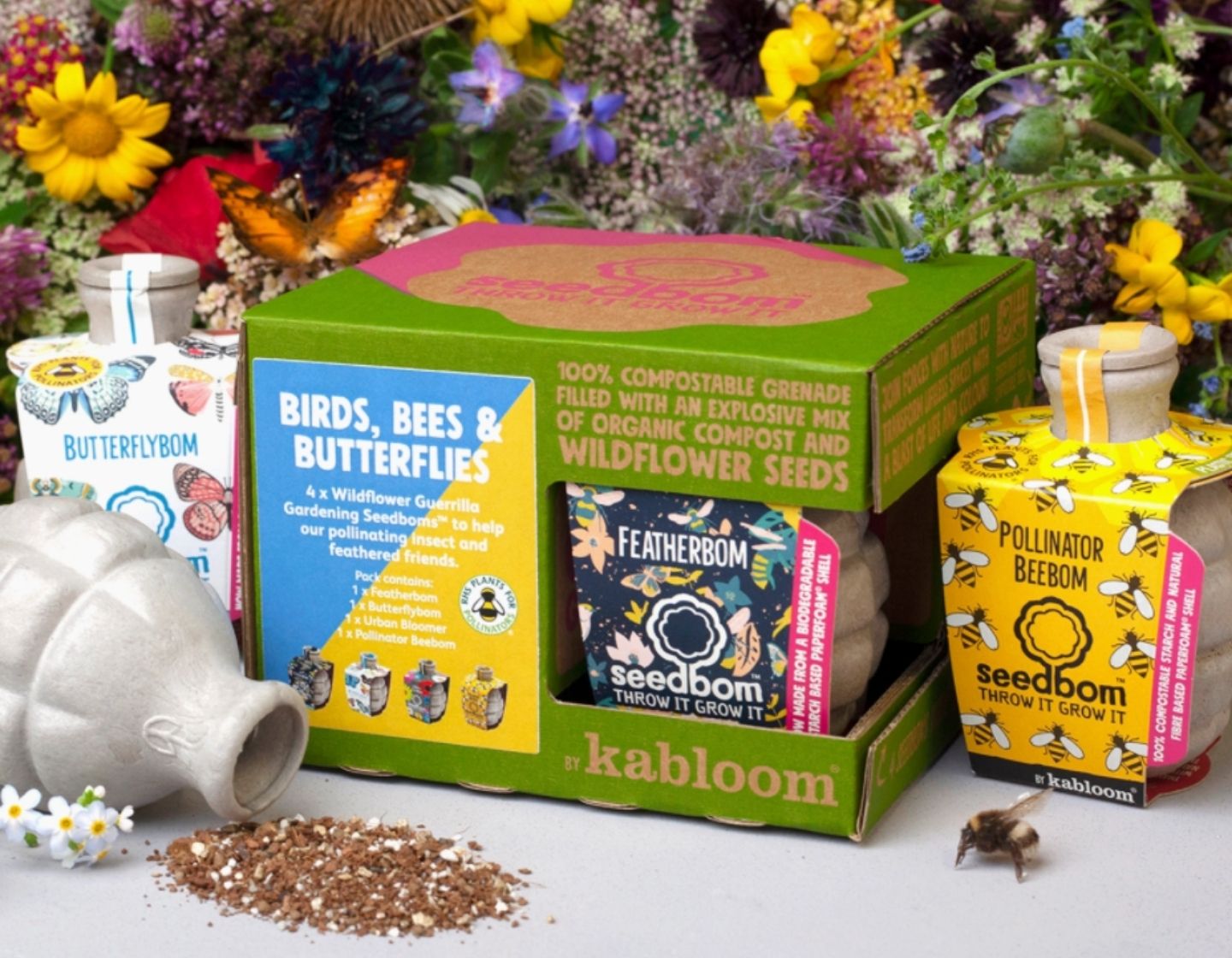
15. Document summer adventures in a diary
Encouraging your children to draw or write down their adventures in a diary will not only help their learning, but be more mindful of their experiences. Let them choose the design and find some colourful pens so they can get as creative as they want.
Journaling also encourages children to observe the world around them, explore emotions and improve their storytelling. Plus, these diaries will be something to treasure over the years and look back on when they get older.

16. Go geocaching
Geocaching is the world’s largest treasure hunt – tap into this thriving community to make your family walks extra interesting! A geocache is a hidden container that holds interesting objects and a logbook of those who have found it. Kids will love discovering them on your adventures.
There are millions of Geocaches worldwide, and you can find them with the Geocache app. Geocaches come in all shapes and sizes – it could be a fake rock, a box attached to a tree or a tupperware stashed in a hole in a wall. Don’t forget to bring a pen to write in the logbook, in case there isn’t one provided. Find out more here.
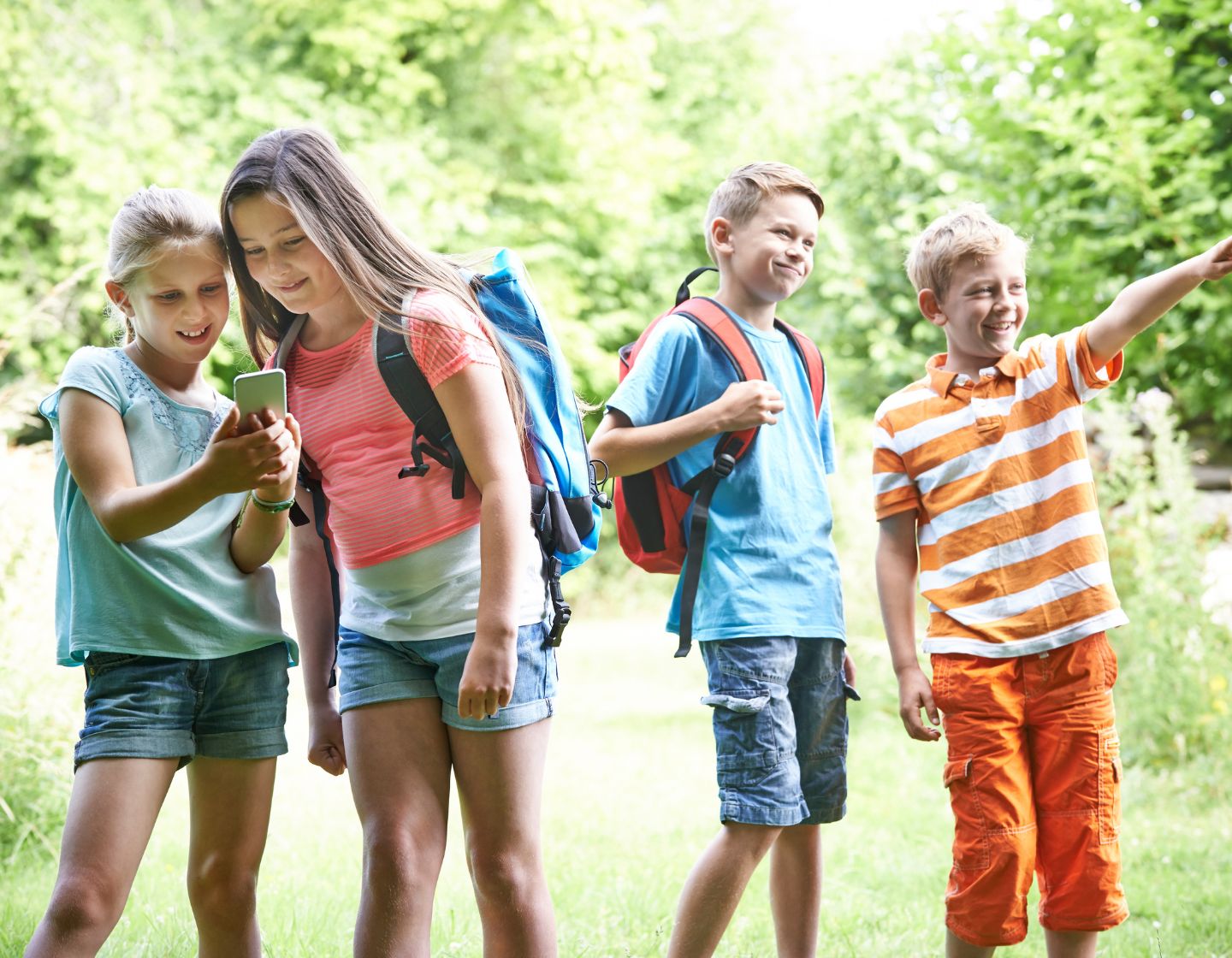
17. Have a barbecue
A barbecue doesn’t have to be a big social occasion – why not have a family barbie just for dinner this summer? Get the kids involved by having them help light the fire, thread some skewers or flip the sausages. Sweet treats like toasted marshmallows or s’mores are sure to go down a storm, too.
Concerned about petroleum firelighters? Get the barbecue going with these FireUp natural firelighters, made from FSC certified sawdust impregnated with vegetable oils. They’re safe to use for cooking, plastic-free, non-toxic and free of fossil fuels.
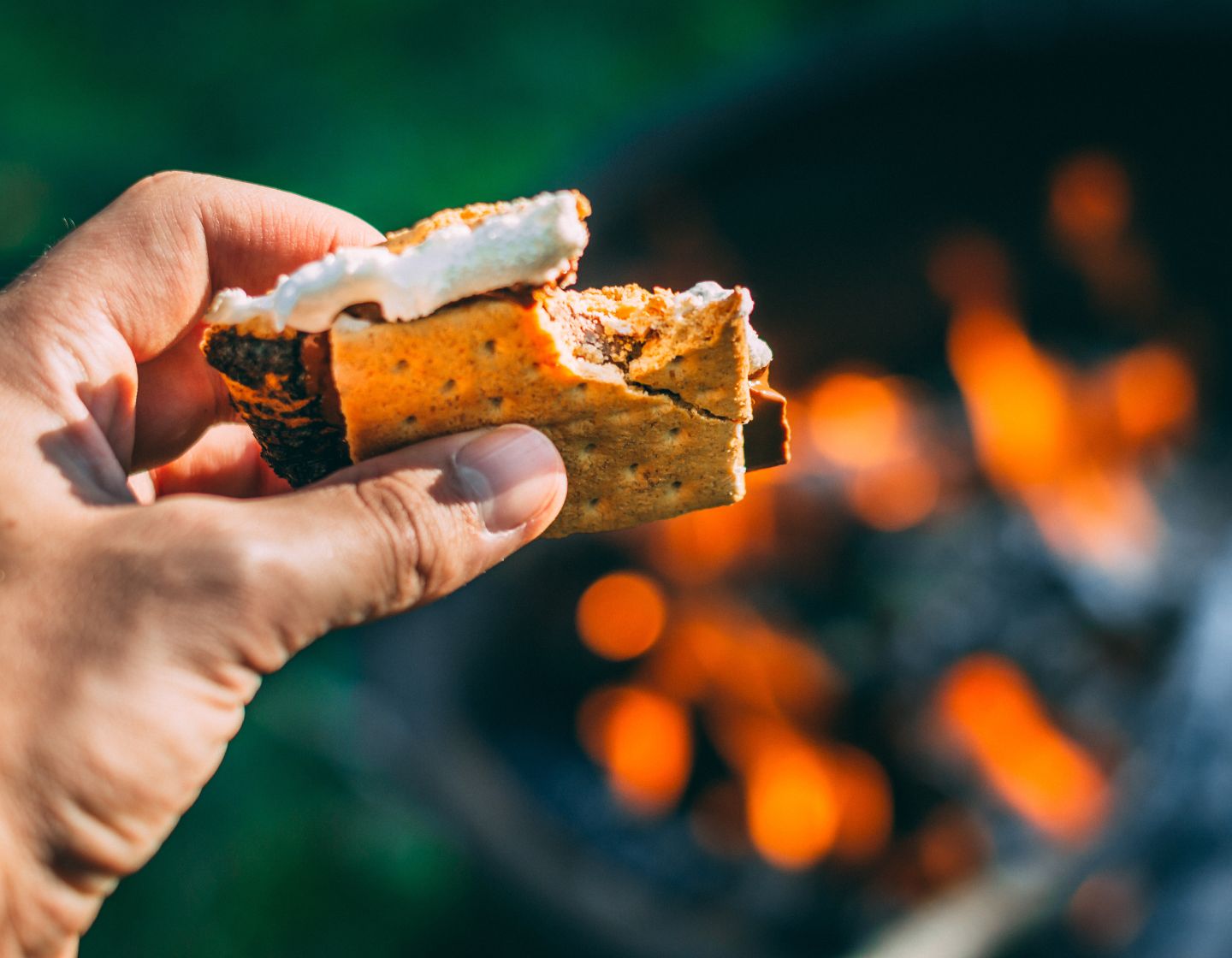
18. Find cheap cinema screenings
Too hot to do any of the above? Seek refuge in your local cinema. ODEON, Cineworld and Vue all offer discounted kids’ screenings, usually on weekends and school holidays in the mornings. Check online to see what’s on in your branch.
You can also find parent-and-baby screenings, autism-friendly screenings and more in lots of cinemas – just check your local programme. Plus, don’t forget to support your local independent cinema, which will show plenty of child-friendly movies alongside more off-the-wall titles.

Join our Home Club for more top tips
Our Home Club is full of family-friendly, environmentally-conscious tips to help you have a cheaper summer. Discover thousands more articles and enjoy big discounts when you sign up here.
Did you use any of these budget-friendly tips this summer? We’d love to know about it – tag us on Facebook, Instagram or Twitter!













